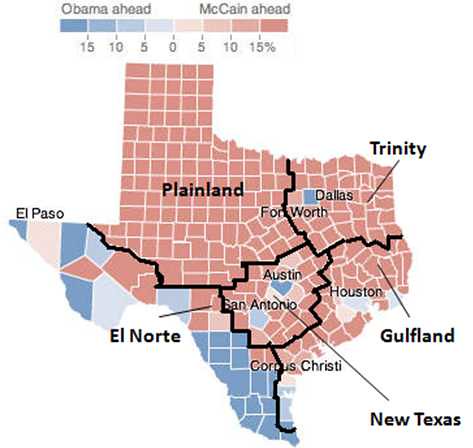An insightful article over at the Smithsonian ponders the national (U.S.) decline in the trust of science. Regardless of the topic in question — climate change, health supplements, vaccinations, air pollution, “fracking”, evolution — and regardless of the specific position on a particular topic, scientific evidence continues to be questioned, ignored, revised, and politicized. And perhaps it is in this last issue, that of politics, that we may see a possible cause for a growing national pandemic of denialism. The increasingly fractured, fractious and rancorous nature of the U.S. political system threatens to undermine all debate and true skepticism, whether based on personal opinion or scientific fact.
[div class=attrib]From the Smithsonian:[end-div]
A group of scientists and statisticians led by the University of California at Berkeley set out recently to conduct an independent assessment of climate data and determine once and for all whether the planet has warmed in the last century and by how much. The study was designed to address concerns brought up by prominent climate change skeptics, and it was funded by several groups known for climate skepticism. Last week, the group released its conclusions: Average land temperatures have risen by about 1.8 degrees Fahrenheit since the middle of the 20th century. The result matched the previous research.
The skeptics were not happy and immediately claimed that the study was flawed.
Also in the news last week were the results of yet another study that found no link between cell phones and brain cancer. Researchers at the Institute of Cancer Epidemiology in Denmark looked at data from 350,000 cell phone users over an 18-year period and found they were no more likely to develop brain cancer than people who didn’t use the technology.
But those results still haven’t killed the calls for more monitoring of any potential link.
Study after study finds no link between autism and vaccines (and plenty of reason to worry about non-vaccinated children dying from preventable diseases such as measles). But a quarter of parents in a poll released last year said that they believed that “some vaccines cause autism in healthy children” and 11.5 percent had refused at least one vaccination for their child.
Polls say that Americans trust scientists more than, say, politicians, but that trust is on the decline. If we’re losing faith in science, we’ve gone down the wrong path. Science is no more than a process (as recent contributors to our “Why I Like Science” series have noted), and skepticism can be a good thing. But for many people that skepticism has grown to the point that they can no longer accept good evidence when they get it, with the result that “we’re now in an epidemic of fear like one I’ve never seen and hope never to see again,” says Michael Specter, author of Denialism, in his TEDTalk below.
If you’re reading this, there’s a good chance that you think I’m not talking about you. But here’s a quick question: Do you take vitamins? There’s a growing body of evidence that vitamins and dietary supplements are no more than a placebo at best and, in some cases, can actually increase the risk of disease or death. For example, a study earlier this month in the Archives of Internal Medicine found that consumption of supplements, such as iron and copper, was associated with an increased risk of death among older women. In a related commentary, several doctors note that the concept of dietary supplementation has shifted from preventing deficiency (there’s a good deal of evidence for harm if you’re low in, say, folic acid) to one of trying to promote wellness and prevent disease, and many studies are showing that more supplements do not equal better health.
But I bet you’ll still take your pills tomorrow morning. Just in case.
[div class=attrib]Read the entire article here.[end-div]


 Our current educational process in one sentence: assume student is empty vessel; provide student with content; reward student for remembering and regurgitating content; repeat.
Our current educational process in one sentence: assume student is empty vessel; provide student with content; reward student for remembering and regurgitating content; repeat.